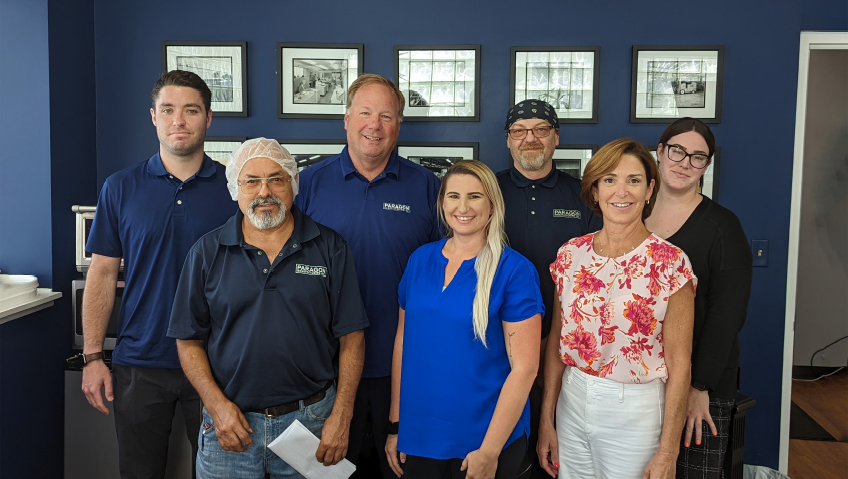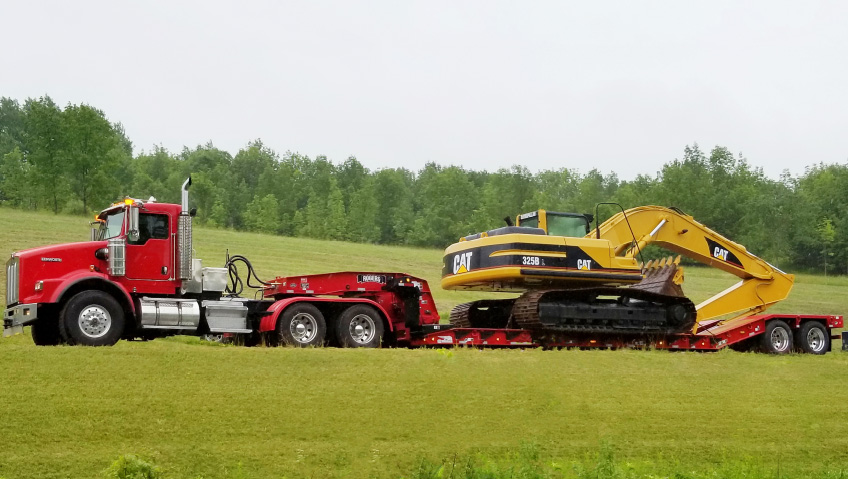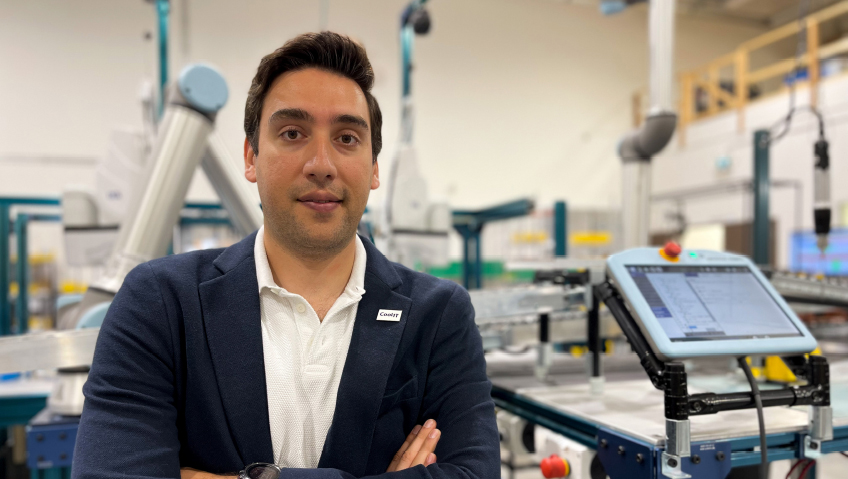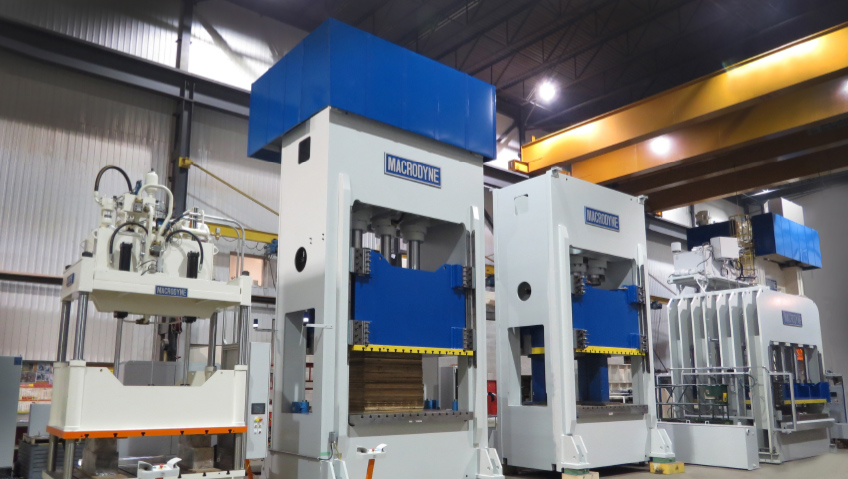Quality is imperative, but nowhere is this truer than in food service. Those involved in what goes into our precious stomachs must work with companies equally committed to high quality and must choose their partners carefully.
Based just outside Chicago, Paragon Manufacturing has accumulated nearly 70 years of business experience through sustained, lean efficiency, and day-in, day-out commitment to quality. Now, the company is preparing to scale some even higher peaks through its elevation to SQF Certification.
Paragon traces its lineage to 1953, when William Wright set up a small tool & die shop in the Chicago suburb of Melrose Park. Growth was steady, and within a few years the fledgling business was able to expand into its current location just 10 blocks away.
Soon after opening his shop, William made a custom mold for a customer, a 5-gallon pail, but was left with it after the customer couldn’t pay. Reasoning he could make more, he set up Paragon’s first injection press in the early 1960s, soon becoming a major supplier to the container industry.
As Paragon expanded over the decades, it scaled back its custom molding and instead became a significant provider of food pails and shipping containers.
Today, William’s son Peter Wright leads Paragon, having joined the company straight out of college, and taking over leadership duties in 1992. One of the new president’s first actions was to replace Paragon’s old hydraulic presses with electric. “Our presses were hydraulic, and hydraulics are inefficient,” says Wright.
This switch was a prescient move toward a policy of sustainability, a policy which has endured and intensified at the company ever since.
As a major supplier to food suppliers across the United States, Paragon offers pails in sizes from one to six gallons, with additional options such as four-gallon square containers and five-gallon stretch pails. All pails are available in a variety of colors, with a choice of either metal or plastic handles. Paragon offers ‘EZ-Off’ covers to keep ingredients fresh but can be opened and closed quickly. Finally, all pails and containers are available with spouts, tear tab lids, ¾ plugs and more.
That Paragon’s product line has remained strictly limited to pails, covers, and handles has surely contributed to its longevity. “That’s all we sell,” says Sales Manager Greg Alm. He and his colleagues have fully grasped the wisdom of focusing on a small market niche rather than overextending the company. “There are other companies that might have expanded into other product, but we’ve always been focused on that, and Peter’s led that focus.”
This focus has endured despite the addition of more presses and work shifts over the decades. Up against so many competitors admittedly bigger, Paragon’s strength is that it’s small but nimble, able to respond to customers’ needs flexibly.
“We have a minimum order quantity of one box,” says Operations Manager Ashley Carroll. This allows Paragon to cater not only to large clients but also smaller operations, which may not need pails by the pallet or skid. “We can get you 42 pails, and we can get it to you same-day or next-day,” Carroll says.
She notes that Paragon prides itself on its rapid turnaround times. “If you call and you’re in dire need, we’re going to try and accommodate you in any way that we can.” With an efficient office staff, Paragon’s team can discuss operations and make decisions quickly—no tedious emailing to project managers.
Yet this flexibility is tempered by Paragon’s clear knowledge of its own limits, and the refusal to go beyond them. Having scaled back from custom molding, Wright argues this need for customization and turnkey solutions limits Paragon’s ability to help its primary customer base.
“When you do a custom mold, you’re really forced to adhere to that one customer’s needs,” he says. “We want to help all our customers, large and small.” To ensure this flexibility continues, Paragon will always have a diverse customer base, he says. “My goal is never to have a single customer over five percent of our business,” he says.
In a modern business world where instant communication and results are expected, if not essential, Paragon’s team takes pride in its more personal touch. “I’ve never allowed voicemail,” Wright says. “If a customer comes in, they’ll always talk with someone.”
Carroll confirms this policy. “Someone is always going to answer the phone,” she says. “Your call really is important to us, because I’m talking to you!”
Yet despite this arguably anachronistic environment, Paragon’s small size and decades in business has earned it a loyal cadre of repeat customers, some of whom have enjoyed business with Paragon for over 30 years. This loyalty has been earned through Paragon’s commitment to its clients.
During the pandemic, the Texas Deep Freeze of early 2021 literally froze the operations of many of the Lone Star State’s resin suppliers. Yet even during this darkest hour, Alm remarks, with quiet professional pride, “We have not let any customer go without. We’re in tune with their production schedules, and that’s the flexibility we have in supplying them with the product that they need.”
The loyalty has kept the company going through rough times.
Paragon’s resin supplier, with whom the company has maintained a relationship for over 25 years, guaranteed the company’s resin supply even when it couldn’t make similar guarantees to its competitors. “Because of our relationship, because of the familiarity that was there between us, they made sure we had our resin,” says Vice President of Special Projects Dina Wright.
“As we are loyal to our customers, we are loyal to our vendors, and that really paid off during the pandemic,” Carroll adds. She relates a time when steel handles could not be produced due to supply difficulties in the steel industry, and Paragon was able to step up and make more plastic handles.
This loyalty results from Paragon’s commitment to quality above all else. Alm relates one example in which a batch of pails came out slightly off-color during a color change. Despite the customer still wanting to buy them, Wright refused. “I don’t want anything leaving this plant with our name on it that’s not perfect,” he says. “Peter’s invested in quality, and that has continued,” Alm remarks.
Paragon’s high-quality policy continues with its new SQF Certification. Offered by the Virginia-based Safe Quality Food Institute (SQFI), itself a division of the larger industry organization The Food Industry Association, SQF Certification has established global food safety standards since its initial development in 1994.
SQF standards are updated regularly, most recently in 2020, in accordance with GFSI (Global Food Safety Initiative) standards. While Paragon started with AIB (American Institute of Baking) certification for its food containers, SQF has increasingly become the industry standard.
As Carroll puts it, Paragon’s upgrade to SQF certification was not only a sound business move, but a gesture of practicality as well; many of Paragon’s clients, as well as Paragon itself, share similar auditors with similar auditing practices. Paragon’s change to SQF standards gives auditors more confidence in the company’s practices, she says. “It opens doors with bigger food companies.”
Implementing this change required a new set of regulations and balances at Paragon’s plant, not without moderate disruption, but Carroll remarks how the company reacted with excitement. “It was a struggle for some, but everybody took part,” she says. “There was no hesitation or pushback.”
In addition to its practicality, Paragon’s upgrade to SQF serves to keep it competitive in a global market.
“Some customers won’t even talk to you unless you’re GFSI-certified,” Alm says. He predicts that, one day, all food vendors will be required to be SQF-certified. “We saw that coming and said, ‘this is an opportunity for us, not only to improve but also an opportunity to gain more quality customers who appreciate SQF.”
Now that Paragon is officially SQF-certified, Alm notes how the company is already feeling its effect on business practices, particularly in enhancing customer service. “If there’s a complaint, we’re on it that day, and part of SQF is to conduct traceability,” he says.
Paragon’s team will trace the problem to its source, working with clients and/or vendors. “It’s helped us eliminate issues and take care of them in the minds of the customers, and they really appreciate that. That helps with boosting the quality of the product we manufacture.”
As Paragon prepares to celebrate its 70th anniversary next year, the company is investigating expanding elsewhere in the Midwest. Nevertheless, at present, with its location near Chicago, a loyal client base, flexible team, and new production standards, the company offers the best of high-quality containers and lean management standards.
And with its new SQF Standards, it is now ready to embrace bigger challenges.






